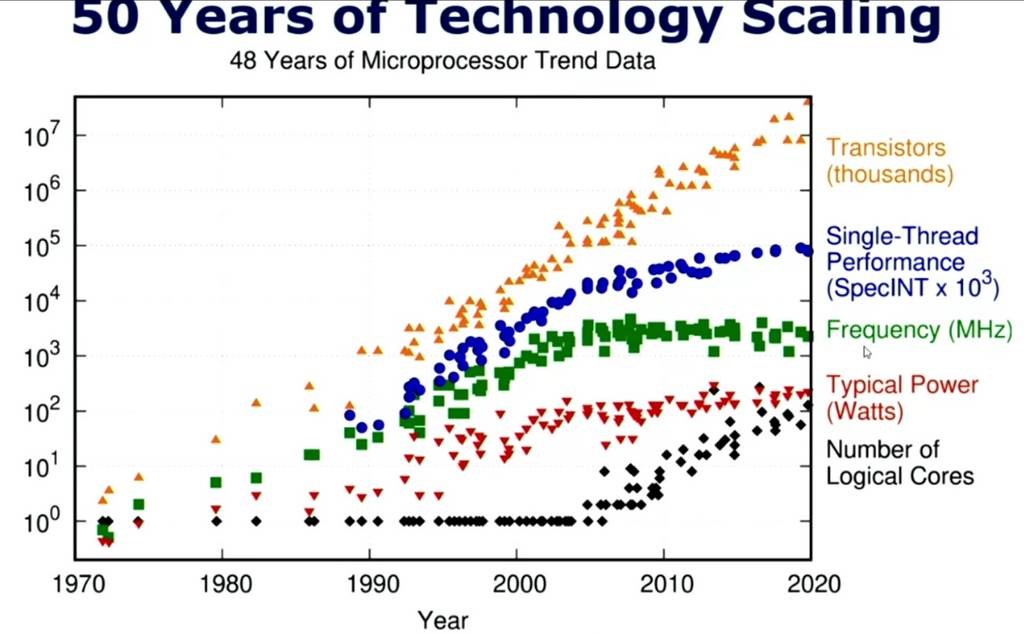(Small detail: as I type, only Amazon offerings have appeared. I'm assured the remaining ebook formats will have percolated to other sites and ebook formats within a few days.)
The three reissued books being ...
Thoughts (and occasionally fuming) about the state of science, fiction, and science fiction.
by author and technologist
Edward M. Lerner
(Small detail: as I type, only Amazon offerings have appeared. I'm assured the remaining ebook formats will have percolated to other sites and ebook formats within a few days.)
The three reissued books being ...
This month, IEEE (the Institute of Electrical and Electronics Engineers, of which I am a longtime member) is observing a milestone we should all be honoring: the 75th -- diamond -- anniversary of the transistor.
 |
| Cover art, December 2022 IEEE Spectrum |
The Intel 4004 microprocessor, introduced in 1971, had about 2300 transistors. Today's Intel i9 processors have more than three billion.
 |
| One snapshot of progress |
Beyond general admiration for what this industry has accomplished, and the related industries (including, certainly, anything to do with the Internet), I feel a personal affinity.
Now try to imagine what marvels new versions of the transistor will enable by the device's 100th anniversary. I, for one, can't wait.
Updated January 2, 2023: the InterstellarNet series is temporarily out of print and electrons
Authors are frequently asked, "Which of your books is your favorite?" This is (as I've opined before) among our least favorite questions. It's about like asking a parent, "Which is your favorite child?"
With this year's release of The Best of Edward M. Lerner I've at least gained an answer to the related question, "Which of your books should I try?" -- and yet, that career-spanning short-fiction collection isn't the authorial "soft spot" of my subject line.Hence, the "fleeting opportunity" also mentioned in my subject line. Unavoidably, this is a commercial announcement. While I'm confident these books/ebooks will be reissued sometime, I can't speak to when.
Each InterstellarNet novel offers an entirely different take on First Contact -- and yet, all three novels interrelate. Perhaps the essential reason for my attachment to InterstellarNet is the obvious one. A story premise whose first glimmerings shaped a single novelette had such potential that I couldn't set it aside until three novels later.
Along the way, precursor stories to two of the novels collected, among their recognitions, my first appearance in a year's best anthology and a Hugo Award nomination. One precursor was serialized -- as the lone work of fiction -- in the proceedings of a conference of the UN's International Telecommunications Union. (And aptly so. The ITU was inspiration and role model for my Interstellar Commerce Union.) Oh, and InterstellarNet: Enigma, the third and concluding novel of the series, was a Prometheus Award nominee and winner of the inaugural Canopus Award for a novel "honoring excellence in interstellar writing."
Until year's end, when InterstellarNet begins its unanticipated hiatus, these are the novels (the titles link to Amazon):
InterstellarNet: Origins. We are not alone. Now what? (Other than a cascade of crises, ever more daunting, to bedevil an expanding number of interstellar civilizations for generations.)InterstellarNet: New Order. Humanity is about to discover that meeting aliens face to face is very different -- and a lot more dangerous -- than long-distance chicanery.
InterstellarNet: Enigma. Humanity once feared that we might be alone in the universe. Now we know better -- and there are far worse things than being alone.
InterstellarNet: Complete. All three novels in a bargain ebook omnibus.
“Lerner’s world-building and extrapolating are top notch.” -- SFScope
“An excellent series.” -- Galaxy’s Edge
“… A well researched hard science fiction series. Building from today’s technology into a believable tale of the not-so-distant future of characters, ships and planets, I really enjoyed it.” -- Abyss & Apex

You know what I imagine must be every author’s least favorite questions? “What’s your favorite from among your books?” And, “If I want to tr...



